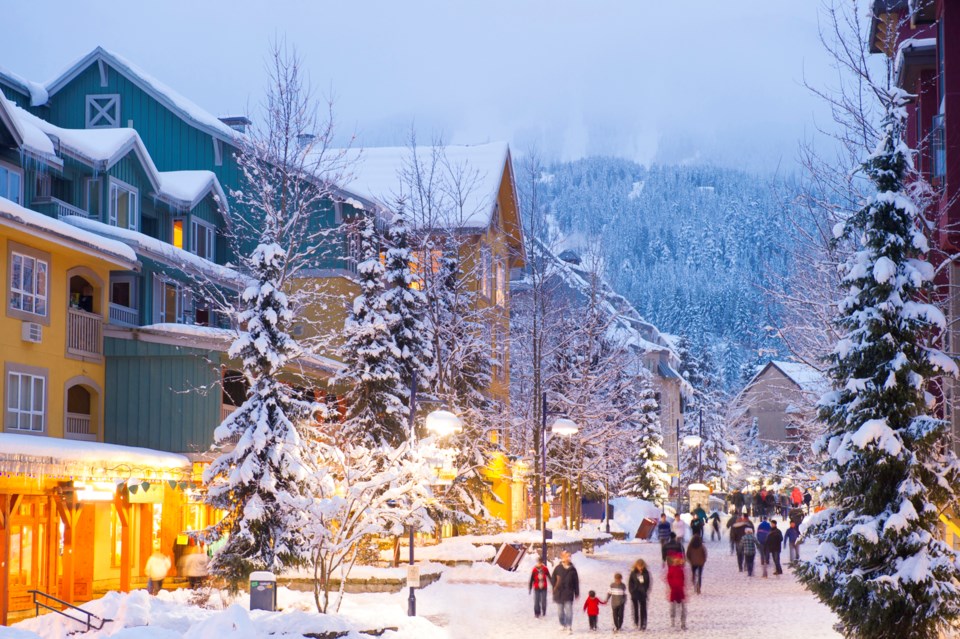A while back, I was once a prolific letter writer to Pique. Many of those who read and noticed them have recently asked me why I haven’t submitted one in quite a few years. What gives? The short answer is my hope gives.
Let’s face it, Whistler is a victim of its own success. Any attempts to even try to resuscitate some form of authenticity are fruitless at this point. In retrospect, maybe I was idealistic, naive and just holding on to the carefree glory years of ski bums and hippies. Can you imagine before the onslaught of social media, I thought my opinion could optimistically spark change, instil common sense or at least create a dialogue with the lawmakers? It’s laughable now.
“Plus c抬a change, plus c’est la me虃me chose.” While the target demographic, corporate structure, overpriced everything and blatant opulence are the new normal, all the old problems still exist and have never been fully addressed. The writing has been on the wall for decades. . None of this happened overnight. It seemed there was this notion that if you avoid it, it may fix itself. Cater to the rich and the peasants will magically take care of themselves.
Even when I moved here in 1988, there was a “housing crisis.” Basically that meant a ski bum that arrived in November may have to couch-surf for a while. I spent my first night on Seppo’s couch and the rest of the season in a motorhome at the KOA Campgrounds (now Spruce Grove). At least there were options back then—plenty of ski chalets with lots of rooms, and some with cheap rent, especially in the summer.
House parties, potlucks, bonfires and visitors were common. Almost all this inventory has been replaced by usually vacant, single-family vacation homes. Where zoning permits, most of the remaining rentals are now Airbnb. Square footage and occupancy is inversely proportional. It’s either a 5,000-plus-square-foot mansion used short-term or four to a bedroom.
Back then you could still squat in many places, and the day lots were free campgrounds. Myself and many of my forward- thinking friends improvised for a while to come up with a down payment for a townhouse or lot up in Pemberton/Birken. 麻豆社国产was rough, but an affordable option, with plenty of listings after the mill closed. These folks are the lucky ones who were able to stay and raise a family in the Sea to Sky. Unfortunately, most of those who didn’t invest had to move away. Now, even successful long-term locals are cashing in and moving on.
My point is we are much worse off now with respect to housing, affordability and the ability to attract and retain the creative, visionary and business-savvy people as well as all the workers needed to make the resort function in the long run. Add to this overtourism, corporatization, traffic, unsustainable growth, climate change, loss of arts and culture (I still grieve the loss of The Boot and the original Dusty’s) and it’s obvious there is no turning back. I now feel like an outsider when walking through the village. The most noticeable change is the demographic.
My visionary self can still imagine the what ifs of missed opportunities. The social housing, more staff accommodation, hostels, seniors homes, a locally or at least Canadian-owned ski company, concert venues, preservation of history, sustainable energy options, a rail service, affordable restaurants, relaxed liquor laws and a thriving cannabis scene. Can you believe we don’t even have a pot shop yet? We’ve missed the boat on so many fronts.
On a positive note, there are still some things in Whistler that are wonderful and timeless, mostly the things that can’t be ruined by capitalism, bureaucracy, greed or mismanagement. I have great memories, fabulous friends, appreciate nature and the beautiful scenery, and I still enjoy skiing, my job grooming, and vending at the farmers’ market. I’m one of the lucky ones.
“The more things change, the more they stay the same.”




